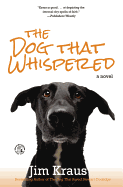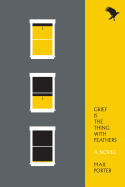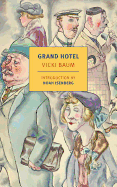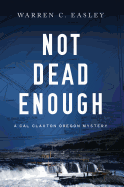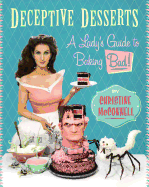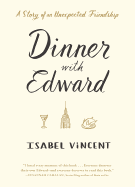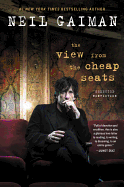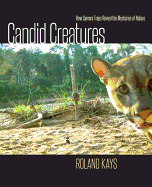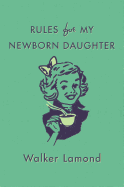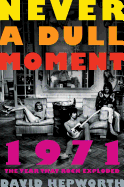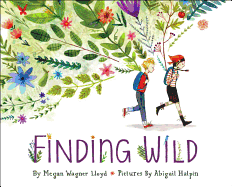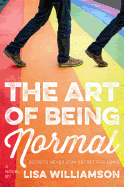.jpg) |
| photo: Stephanie Pommez |
Allison Amend, a graduate of the Iowa Writer's Workshop, is the author of the novels A Nearly Perfect Copy and Stations West, which was a finalist for the 2011 Sami Rohr Prize for Jewish Literature and the Oklahoma Book Award. She is also the author of the Independent Publisher's Award-winning story collection Things That Pass for Love. She lives in New York City, where she teaches creative writing. Her latest novel is Enchanted Islands, based on the life of Frances Conway, who lived with her husband, Ainslie, on the Galápagos Islands for several stretches in the 1930s and '40s. Our review is below.
When did you discover Frances Conway, and what about her spoke to you? Did you know you needed to tell this story when you first encountered her?
I discovered Frances through her memoirs. I originally wanted to write about the series of strange disappearances on the Galápagos island of Floreana, but some of the descendants of the people involved are still alive, and Dayna Goldfine and Dan Geller were making a documentary about it, and I felt I wanted more freedom to imagine characters. It was in that period of research, though, that I read Frances's memoirs and immediately fell in love with her voice. She is funny and witty, self-deprecating and actually a talented writer. This was a voice I wanted to attempt to emulate.
What also struck me about her two books is what they didn't say. She was 50-year-old woman married to a man more than 10 years her junior, and in her middle age they decided to go to a deserted island? There was some larger story that she wasn't talking about. It was in the space between the lines that my interest in the story grew.
I had written a full draft of the novel before I went to do research. Frances never mentions in her memoirs that Ainslie has a drinking problem, but I wrote that into the novel. Later, I spoke to the son of someone who knew the couple, who said that the Conways had come to Floreana in part so he could dry out. There are traces of honesty even when we try to hide them.
Have you ever been to the Galápagos?
Yes. My parents took me and my brother when I was just out of high school. It was an amazing trip. During that time I read Floreana, Margret Wittmer's account of the strange goings-on on the island, and I became fascinated with the human history of the islands.
I returned to do research in February 2015 and found the islands much changed. Land-based tourism is in full effect, and the population of the islands has exploded. I saw many more Ecuadoreans taking advantage of their natural park. It's wonderful that the islands have become accessible to those who are non-wealthy, but the increased traffic stresses the islands.
Every superlative everyone has uttered about the utter awesomeness of the Galápagos is true. I urge everyone reading this to visit this spot before tourist degradation destroys it.
 Where is the line between fact and fiction? How firm is it? How important is it to you?
Where is the line between fact and fiction? How firm is it? How important is it to you?
Ehhh, line-schmine. I like to say that fiction dwells in the possible, not the probable. Is it possible that Frances and her husband were spying for the U.S. government? Unlikely. But it does seem clear that Ainslie wrote an anonymous feasibility report for the U.S. Navy, and it is rather strange that a mismatched middle-aged couple would play Swiss Family Robinson on a strategically placed island full of Germans just before World War II, so who knows?
If there had been more historical records about Frances and Ainslie, I might have felt more compunction about inventing their lives, but the dearth of facts seemed to me to be a green light.
How much research did you do, and do you find that part of the process enjoyable?
I love to do research, and all of my books have been research-intense. It is one of the most enjoyable parts of writing for me. This may be because I get to procrastinate and call it writing.
I did try to complete a working draft before I started researching so that I would be sure to focus on creating characters rather than writing a Forrest Gump-like series of important events.
I did a lot of my research on the internet, unsurprisingly. There is a fantastic resource on the human history of the islands compiled by John Woram: www.galapagos.to, which has nearly all the historical documents that exist on the islands. I also did a lot of reading on spying tradecraft in the 1930s, and the role of the Pacific and the Panama Canal in the Second World War. Then there was all that research on Chicago during the turn of the century and San Francisco in the periods between the wars. Oh, and I went to the Roosevelt library and the Allan Hancock collection at the University of Southern California.
I read Frances's memoirs several times, because I wanted her voice in my head. For a while I considered weaving in parts of her memoir, but I decided that would be more of a gimmick than an asset to the novel, so I tried to put the book out of my head and just write from my memory of her voice.
There comes a time, though, when research starts to inhibit imagination instead of spark it, and then it's time to put the research away and just write.
Do you have a favorite character or one you feel closest to?
Well, obviously I spent four years or so with Frances, so I feel like I know her (or my fictionalized version of her) very well. But I have sympathy and fondness for all the characters in the novel.
In what ways is this book different from your previous work?
All of my books are different from each other. One of my biggest pleasures in writing is to try something new--it keeps the writing exciting and challenging. After my last historical novel, I swore I would never write another... but the pull of this story was just too great.
Enchanted Islands was a challenge because I was writing in first person for the first time in a novel. And I was writing from a voice that already existed. I didn't have to match it, but I wanted to be true to its spirit. I was also challenging myself to write a tightly plotted novel, with spies and violence and action. From someone who comes from a literary fiction, character-driven background, highlighting plot is like getting a horse to walk backwards. --Julia Jenkins, librarian and blogger at pagesofjulia
Allison Amend: In the Space Between the Lines
.jpg)
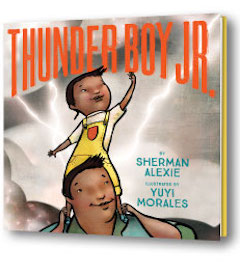



.jpg)
 Where is the line between fact and fiction? How firm is it? How important is it to you?
Where is the line between fact and fiction? How firm is it? How important is it to you?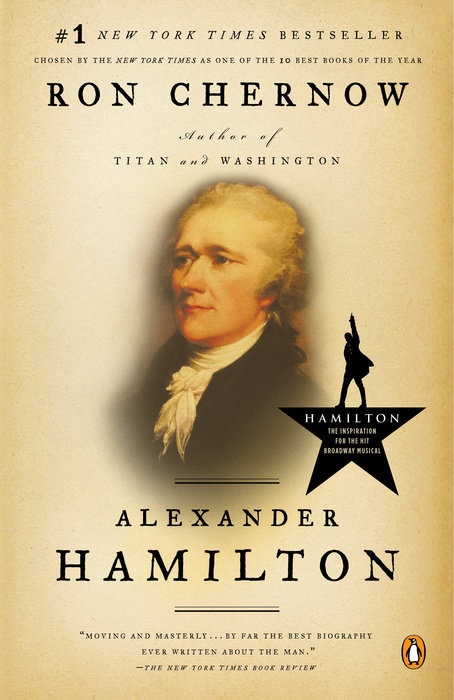 The Broadway musical Hamilton, written by and starring Lin-Manuel Miranda, is a radical reimagining of the life of founding father Alexander Hamilton and one of the most successful Broadway shows of all time: it was nominated for 16 Tony Awards, won the Pulitzer Prize for Drama, a Grammy for Best Musical Theater Album, received resoundingly rave reviews and is sold out for the foreseeable future. The play even saved Alexander Hamilton's portrait on the $10 bill (Harriet Tubman will replace Andrew Jackson on the $20 bill instead).
The Broadway musical Hamilton, written by and starring Lin-Manuel Miranda, is a radical reimagining of the life of founding father Alexander Hamilton and one of the most successful Broadway shows of all time: it was nominated for 16 Tony Awards, won the Pulitzer Prize for Drama, a Grammy for Best Musical Theater Album, received resoundingly rave reviews and is sold out for the foreseeable future. The play even saved Alexander Hamilton's portrait on the $10 bill (Harriet Tubman will replace Andrew Jackson on the $20 bill instead). 
